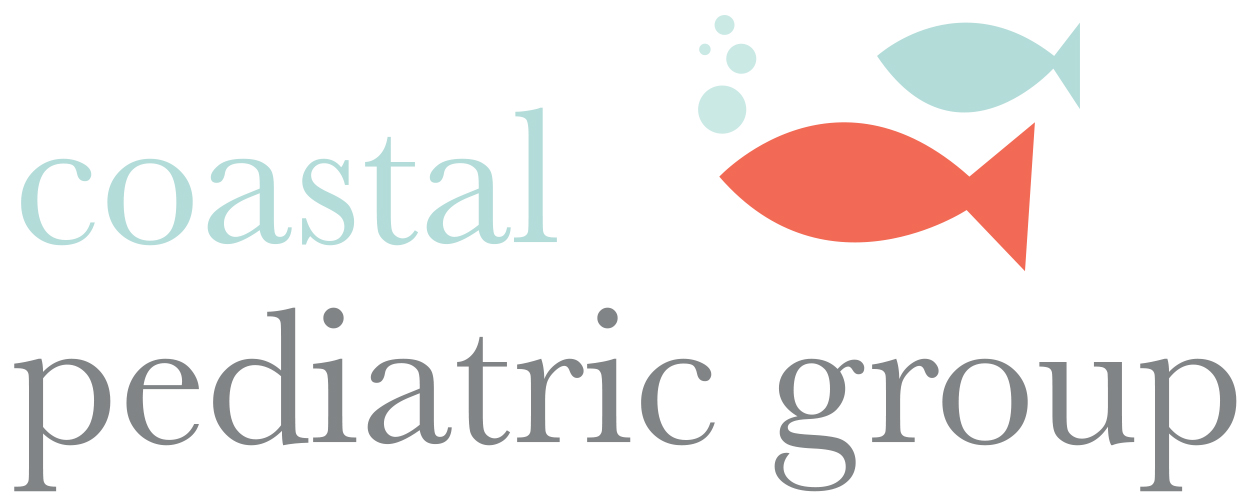9 Month Checkup
(Children 9 – 12 Months Old)
Feeding: While your family is eating, allow your baby to sit at the table with you. Soft finger foods that do not require a lot of chewing can be safely offered at this age. Foods like grapes, hard candies, peanuts, raisins and hot dogs can fit easily in a child’s wind pipe and cause choking, so they should be avoided. Remember that your child still needs breast milk or formula until about 12 months old. Try not to use a bottle to put your baby to sleep, as this will make stopping the bottle harder to do and may cause cavities. We would like your child to be off the bottle at 1 year old. Introduce a sippy cup, if you have not done so already. We prefer that you offer your baby water in his/her sippy cup instead of juice. Fruit juice is fine as a treat, but is largely sugar and water. Do not give soda.
Sleeping: Before 12 months, most babies may sleep all night. Read or sing to your baby to help quiet them down without a bottle, and then put him/her in the crib while he/she is still awake. Try not to pick up your baby or let him/her come in to bed with you as this is a very hard habit to break once you start it. Once your baby is pulling up, make sure the crib is at the lowest level.
Development: Below are some things your baby may do at this age:
• Wave “bye bye”, play “peek-a-boo”, clap hands
• Crawl on hands and knees
• Sit up without help.
• Pull up and stand in crib
• Hold on to toy when you pull
• Pick up things with thumb and finger (pincer grasp)
• Copy sounds that you make
• Say Mama and Dada
Continue to read, talk, sing, and play frequently with your baby to help promote language development. The more you stimulate your child, the more he/she will learn. Start pointing to objects like body parts and animals to your child. Remember every baby develops differently.
Illness: Always wash your hands, and make sure other children do the same. Remember, fever is only a sign of illness. Many infections at this age are caused by viruses and do not need antibiotics. Never give an antibiotic unless your doctor tells you. You can give acetaminophen (Tylenol) or ibuprofen (Advil/Motrin) if the fever is high or your baby seems cranky.
Immunizations: Your child may get vaccines today. Once again, you may give your baby acetaminophen (Tylenol) or ibuprofen (Advil/Motrin) if he/she has a fever or seems cranky.
Shoes: Shoes do two things. They help keep feet warm and protect them. Children do not need extra ankle support, stiff soles, or expensive shoes. Children learn to walk best in bare feet. Young children make out grow their shoes as often as every 6 weeks.
Teeth: Your baby may have some teeth now. Brush or clean the teeth with a cloth or soft toothbrush twice a day. You should use a small amount (grain of rice) of toothpaste with fluoride. Don’t give you child baby bottles of milk or juice in the crib to help him/ her fall asleep. This can cause cavities even in babies.
Safety:
- Keep poisons and medicines away from reach.
- Don’t store dangerous cleaners in regular drink or juice bottles.
- If your baby gets in to something poisonous but looks okay, call Poison Control (1-800-222-1222). If your baby looks sick call 911. Keep the Poison Control number on your refrigerator, or put it in your phone, so it is easy to fond on case of poisoning.
- Keep the car seat in the back seat facing BACKWARD until baby is 2 years old. You can switch to a convertible car seat if you have not done so already.
- Never leave baby alone in bathtub or swimming pool even for a second.
- Never feed your child small pieces of food, like nuts, popcorn, hot dogs, grapes and hard candies.
- Always use sunscreen and protective clothing/hats when out in the sun.
- Check your hot water heater. It should be set at less than 120 F.
- Accidents are one of the greatest threats to your baby’s health at this age. As your child becomes more mobile he/she can get in to more dangerous situations.
- Keep small objects such as coins, marbles and safety pins out of reach.
- Cover electrical outlets, get cabinet locks and baby gates, and tie up any cords.
- Make sure all plastic bags and balloons are kept locked and out of your baby’s reach.
- Make sure your smoke detector is working.
- Keep your baby away from cigarette smoke.
- Keep your child out of the kitchen while you are cooking to help avoid burns.
* * *
The American Academy of Pediatrics Website for general information – www.healthychildren.org
Your next appointment is at 12 months old.
